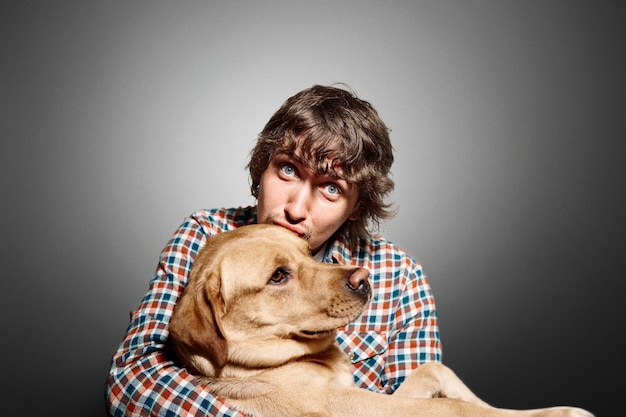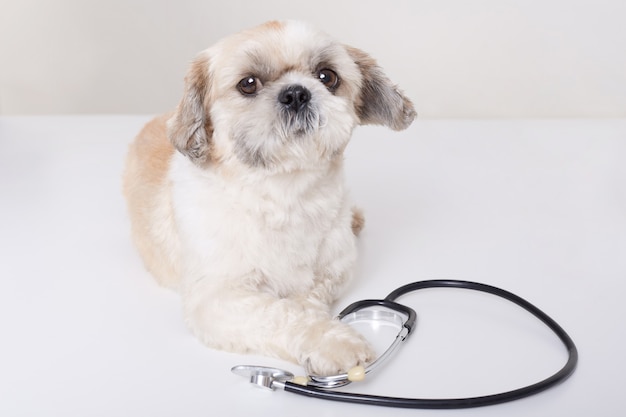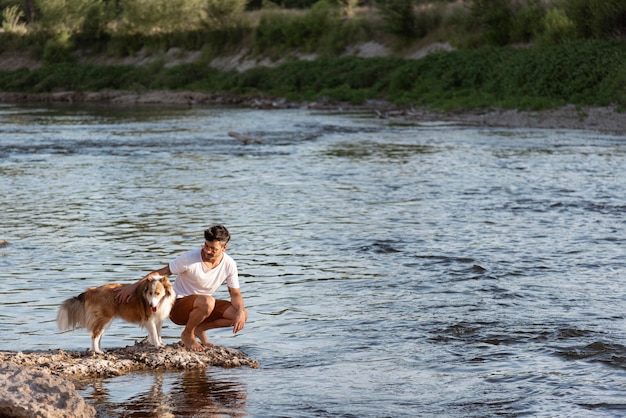What to Do When Your Pet Won’t Eat: Common Causes & Next Steps


What to Do When Your Pet Won’t Eat: Common Causes & Next Steps
When your beloved pet refuses to eat, it can be deeply worrying. Whether you have a playful puppy, a finicky cat, or even a gentle horse, changes in appetite often signal that something is not quite right. At Green Tree Animal Hospital, located at 4371 Old Harrodsburg Road, Suite 140, Lexington, KY 40513, we frequently help pet owners in Lexington and surrounding communities navigate the anxiety and uncertainty that comes with a pet’s loss of appetite.
In this blog, we’ll walk you through why your pet won’t eat, the most common causes of appetite loss in dogs, cats, and horses, and the practical steps you should take to protect your animal’s health. You’ll also discover when it’s time to schedule an appointment with your veterinary team and how to find the right “vet near me” for quality care. If you’re concerned about your pet’s eating habits, our team of veterinarians is committed to helping you find answers and solutions, whether that’s through routine checkups, comprehensive diagnostics, or urgent care. For more details on how a thorough wellness examination can help identify underlying causes, read on.
Recognizing the Problem: When Loss of Appetite in Animals Becomes a Concern
Noticing that your pet won’t eat can be subtle at first. Some animals are naturally less enthusiastic at mealtime, while others dive into their food with gusto every day. It’s important to distinguish between normal pickiness and a true loss of appetite in animals.
Key symptoms include skipping more than one meal, showing little interest in favorite treats, or suddenly turning away from food altogether. For dogs and cats, you might see additional signs like drooling, pawing at the mouth, lethargy, vomiting, or changes in stool. Horses may spend less time at the hay rack, leave grain uneaten, or seem disinterested in treats that would normally prompt excitement. In more severe cases, weight loss, dehydration, and visible weakness can develop if the issue persists.
If you notice your pet not finishing meals for more than 24 hours, or you see rapid changes in appetite combined with other warning signs, it’s time to take action. For pet owners searching for veterinary services near me, early recognition and intervention can make a significant difference in your animal’s recovery.
Understanding the Causes: Why Your Pet Won’t Eat
Loss of appetite in animals can have many underlying causes, ranging from mild to life-threatening. Knowing what might be affecting your pet can help guide your next steps and reduce unnecessary stress.
Medical conditions often account for sudden appetite changes. In dogs and cats, dental pain, gastrointestinal upset, organ disease (such as kidney or liver problems), infections, and metabolic disorders are all common culprits. Parasites, chronic illnesses, and even certain medications can also play a role. For horses, dental problems, colic, ulcers, and changes in feed or environment may trigger a refusal to eat.
Behavioral factors are also important. Pets may refuse food due to stress, anxiety, or changes in their routine. A new environment, the addition of a new pet, or even loud noises like thunderstorms can disrupt eating habits, especially in cats and horses. Sometimes, boredom with an unchanged diet or spoiled food can be the reason your pet won’t eat.
Environmental causes should not be overlooked. High temperatures, unclean water, or sudden changes in feeding times can lead to temporary appetite loss. In the Lexington area, hot summer days and seasonal transitions can affect pets’ eating behavior, especially if they are active outdoors or experience changes in boarding routines.
If you are unsure whether your pet’s appetite loss is due to a mild issue or something more serious, the best approach is to consult with your local veterinary team. Our internal medicine services at Green Tree Animal Hospital are designed to help diagnose and treat the root causes behind these symptoms.
Treatment and Management: What to Expect from a Veterinarian Near Me
When you bring your pet to a veterinarian for loss of appetite, the first step is a thorough assessment. This typically includes a physical examination, a detailed history of your pet’s eating habits, and questions about any recent changes at home. Depending on your pet’s symptoms, diagnostic tests such as bloodwork, urinalysis, fecal exams, dental checks, and imaging studies may be recommended.
For many cases, especially when an underlying medical condition is found, treatment options involve prescription medications, dietary changes, or supportive care such as fluids and appetite stimulants. In situations where dental pain is identified, professional cleaning or dental repair may be necessary. If an infection or metabolic disorder is at play, targeted medications can help restore your pet’s appetite and energy levels.
Behavioral causes are addressed through environmental modifications and gentle encouragement. For example, creating a quiet feeding space, sticking to a consistent routine, or offering a variety of palatable foods can make a difference. For horses, reviewing feeding practices, checking for dental problems, and ensuring clean water sources are essential management steps.
At Green Tree Animal Hospital, our veterinarians are experienced in handling complex cases and providing comprehensive veterinary services in Lexington. Whether your pet requires advanced diagnostics or a simple dietary adjustment, our priority is to guide you through each step and support your animal’s recovery.
If you are concerned about an acute or severe loss of appetite, especially if your pet is also vomiting, experiencing diarrhea, or showing signs of distress, please review our emergency veterinary care options for more immediate assistance.
Prevention and Home Care: Supporting Your Pet’s Appetite at Home
While some causes of appetite loss cannot be prevented, there are practical steps you can take at home to reduce the risk and encourage healthy eating habits. Providing fresh, clean water daily and ensuring food is stored properly to avoid spoilage are important basics. Regular dental care, such as brushing your pet’s teeth or offering dental treats, helps minimize oral pain that may deter eating.
Maintaining a consistent feeding schedule and avoiding sudden changes in diet can help prevent gastrointestinal upset. For pets with known sensitivities, gradually transitioning between foods over several days is key. Creating a calm and inviting feeding environment, especially for cats and horses, can minimize mealtime anxiety. Monitoring your pet’s weight and body condition regularly allows you to catch subtle changes before they become severe.
If you notice ongoing pickiness or mild appetite changes, try offering small amounts of a favorite food or warming the food to enhance aroma. For horses, inspecting feed for mold or dust and ensuring routine dental care are essential practices. Remember, home care is not a substitute for veterinary evaluation if your pet’s loss of appetite persists or worsens.
When to Seek Veterinary Care: Clear Guidelines for Pet Owners
Knowing when to reach out for professional help is crucial for your pet’s well-being. If your pet won’t eat for more than 24 hours, or if appetite loss is accompanied by vomiting, diarrhea, lethargy, drooling, difficulty swallowing, or visible pain, schedule an appointment with your veterinary team promptly. In very young, elderly, or chronically ill animals, even a single missed meal can quickly escalate into a serious issue.
For horses, refusal to eat for more than a few hours, signs of colic, or changes in manure consistency are all reasons to contact your veterinarian immediately.
If you’re searching for a “quality vet near me” or need guidance on whether your pet’s situation requires urgent attention, our team at Green Tree Animal Hospital is always here to help. For more answers to your questions about loss of appetite in animals, visit our FAQ page.
Conclusion: Taking Action for Your Pet’s Health in Lexington
A pet’s loss of appetite can be stressful, but you don’t have to face it alone. By recognizing the warning signs, understanding common causes, and taking prompt action, you give your pet the best chance for a swift recovery. The experienced veterinarians at Green Tree Animal Hospital are dedicated to providing comprehensive care for pets in Lexington and the surrounding communities.
If you are worried that your pet won’t eat or you notice changes in their appetite, we encourage you to schedule an appointment for a wellness examination or consultation. Finding a trustworthy “vet near me” is the first step toward peace of mind and ensuring your animal’s health. For compassionate support and expert veterinary services in Lexington, contact our team at Green Tree Animal Hospital, 4371 Old Harrodsburg Road, Suite 140, Lexington, KY 40513 or call us at (859) 223-2221.
To learn more about how a comprehensive wellness examination can help identify and resolve appetite issues, or to explore our full range of veterinary services in Lexington, visit our website. Your pet’s well-being is our top priority—let us help you find answers and get your animal back to feeling their best.
This blog is for informational purposes only and does not replace professional veterinary advice. If your pet is experiencing a medical emergency, please contact your veterinarian immediately.






_corporate_logo-1920w.webp)
















